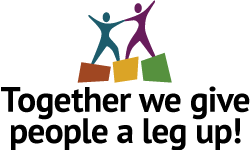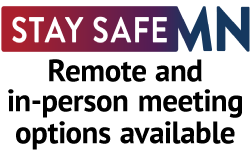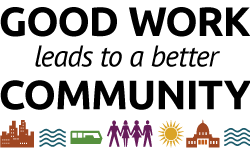
For many immigrants, arriving in the United States is only the first step toward building a safe and stable life. Along with challenges like finding work, housing, and legal documentation, one often-overlooked hurdle is accessing Social Security related services, such as obtaining a Social Security number or applying for social security benefits when eligible or necessary.
These systems are difficult to navigate even for native English speakers. The forms, websites, and phone systems are confusing and rarely user-friendly. When language barriers are added, the difficulty multiplies. While some materials are translated, instructions are often incomplete or unclear. If a mistake is made, finding interpreter support from the social security office can be nearly impossible.
At Daily Work, we see these barriers every day. One recent job seeker and I spent weeks trying to reapply for benefits, without ever being given a clear explanation of why the reapplication was required. Paperwork was inconsistent, directions were unclear, and because she speaks limited English, each call and office visit became another dead end. With our support, she was able to get legal representation, but she might not have found the help she needed without our additional resources and experience.
These challenges are worsened by the government’s increasing reliance on digital systems. While online tools can be convenient for people with reliable internet access, many people don't have this. They are left facing long wait times for in-person appointments or hours on hold for phone support, time they can rarely afford to lose.
It is easy to see how someone facing these obstacles might lose trust or hope in the system. For immigrants who came to the U.S. fleeing authoritarian governments, this distrust can be even stronger. Combined with rising anti-immigrant sentiment, the process can feel not only overwhelming, but hostile.
We can and must do better.
Social Security offices need more staff overall, and especially more multilingual navigators. This is not just idealistic; it’s practical. Better support would reduce errors, shorten wait times, and help people access the benefits they are entitled to. Everyone benefits when fewer people are forced to return repeatedly to correct mistakes, which clogs the system for all.
Here is how you can help:
- Contact your elected officials and urge them to increase funding for multilingual support staff at Social Security offices.
- Support local organizations like Daily Work that provide one-to-one help for job seekers navigating these systems.
- Volunteer your time or language skills to help newcomers complete forms and access vital resources.
With greater understanding, investment, and advocacy, we can build systems that work for everyone, so we all spend less time battling paperwork and more time building good lives.
Nick Abraham is a graduate student in social work at St. Mary’s University and longtime AmeriCorps program leader. He currently directs the Minnesota Grow Your Own Teacher program and brings experience in career development to his internship at Daily Work. Outside of work, he enjoys backpacking, playing Magic: The Gathering, and spending time with his family and dachshund, Rosie.











